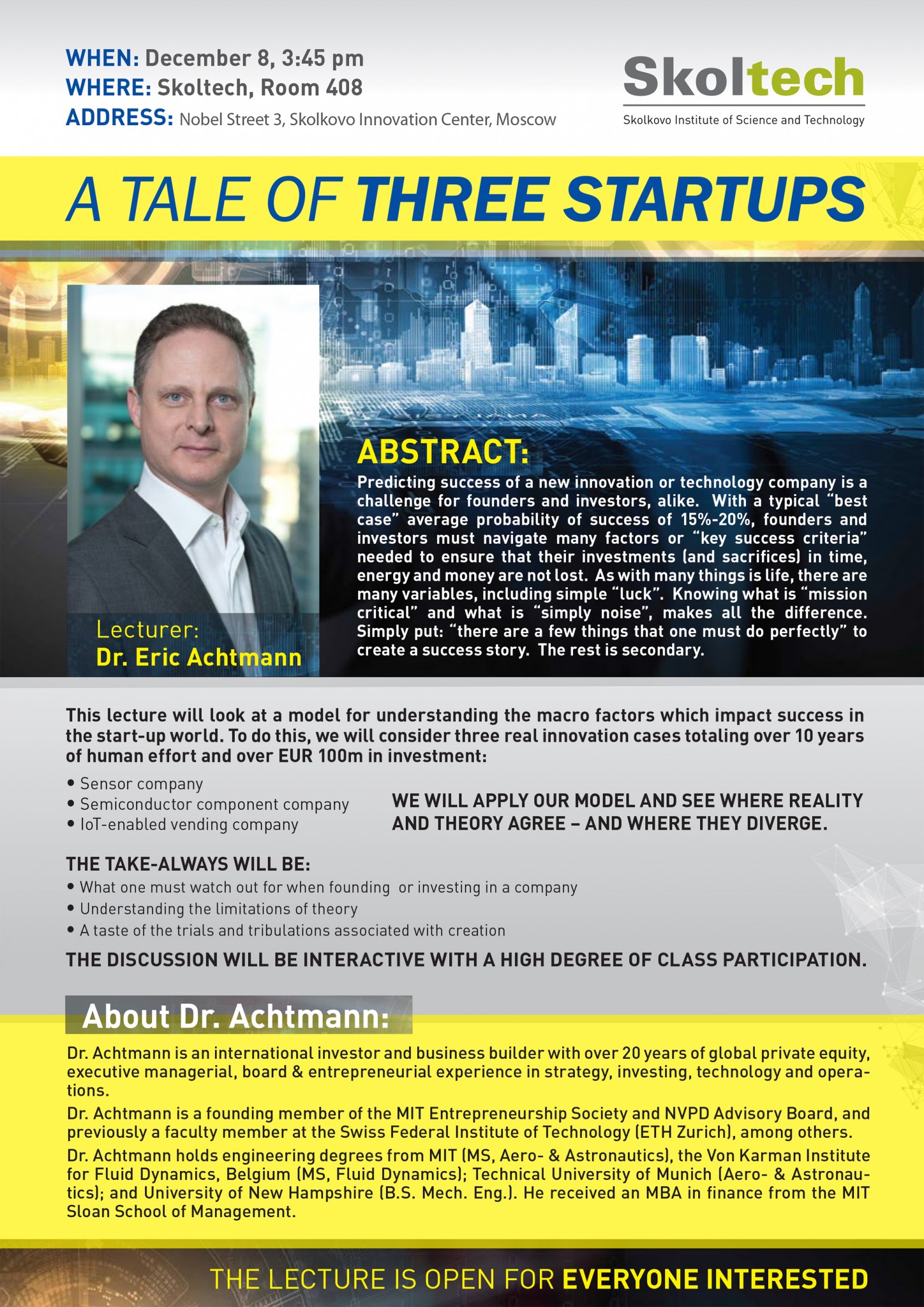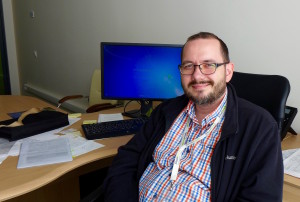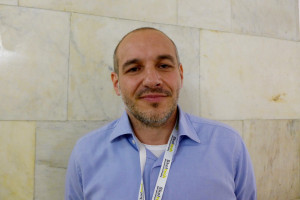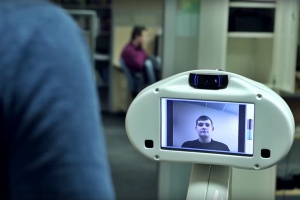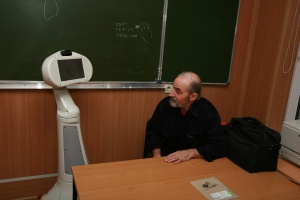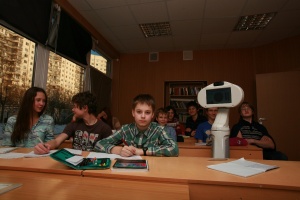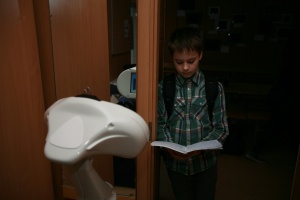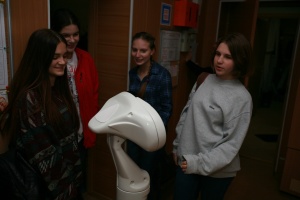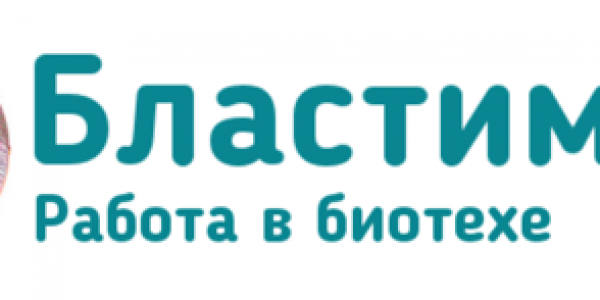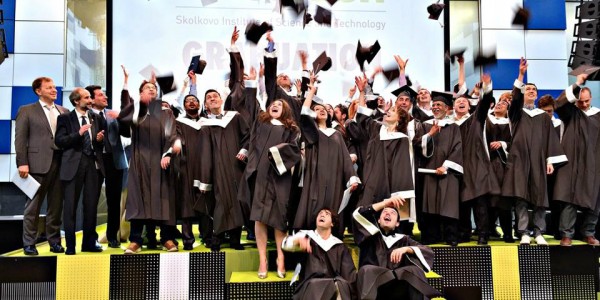Сколтех — новый технологический университет, созданный в 2011 году в Москве командой российских и зарубежных профессоров с мировым именем. Здесь преподают действующие ученые, студентам дана свобода в выборе дисциплин, обучение включает работу над собственным исследовательским проектом, стажировку в индустрии, предпринимательскую подготовку и постоянное нахождение в международной среде.
Архив метки: Startup
Skoltech Center for Energy Systems held its 2nd International Conference
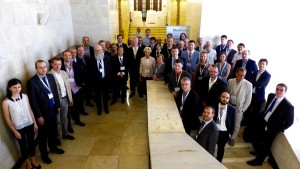 On May 30-31, the Skoltech Center for Energy Systems hosted its second international conference entitled: “Shaping research in integrated gas-, heat- and electric- energy infrastructures”. The conference was jointly organized with the International Institute for Energy Systems Integration (iiESI).
On May 30-31, the Skoltech Center for Energy Systems hosted its second international conference entitled: “Shaping research in integrated gas-, heat- and electric- energy infrastructures”. The conference was jointly organized with the International Institute for Energy Systems Integration (iiESI).
This conference is a continuation of the successful event that took place in June 2015, where the modern mathematical methods applied to energy systems were largely discussed. This year, the internationally invited experts from around the world shared their experiences and discussed the prospects for integration of thermal, gas and electric power systems.
The technical committee of the conference included prof. Janusz Bialek, Director of the Skoltech Center for Energy Systems, his colleagues: prof. Michael Chertkov and prof. Aldo Bischi, and prof. Mark O’Malley, Director of the Research Center for Electric Power, University College Dublin.
 During the first day and a half of the event ,the widely recognized scientists in the field from Russia, USA, Italy, Germany, Belgium, Denmark, UK, Ireland and Japan discussed the challenges and opportunities related to the integration of heat, gas and power infrastructures: Combined Cooling, Heat and Power (CCHP) units achieving higher efficiencies and lowering the environmental impact; fluctuating renewable energy sources as well as loads and prices; electric energy storage both conventional, e.g. electrochemical, and unconventional e.g. as synthetic fuels (hydrogen or synthetic methane) or as thermal energy via heat pumps; thermal energy storage both via buildings inertia and via dedicated heat storage tanks integrated in the district heating network; how to deal with emergencies and be sure to operate in a safe interval.
During the first day and a half of the event ,the widely recognized scientists in the field from Russia, USA, Italy, Germany, Belgium, Denmark, UK, Ireland and Japan discussed the challenges and opportunities related to the integration of heat, gas and power infrastructures: Combined Cooling, Heat and Power (CCHP) units achieving higher efficiencies and lowering the environmental impact; fluctuating renewable energy sources as well as loads and prices; electric energy storage both conventional, e.g. electrochemical, and unconventional e.g. as synthetic fuels (hydrogen or synthetic methane) or as thermal energy via heat pumps; thermal energy storage both via buildings inertia and via dedicated heat storage tanks integrated in the district heating network; how to deal with emergencies and be sure to operate in a safe interval.
 The 2nd half of the second conference day was devoted to discussion of the techno-economic aspects and integrated energy infrastructures practical challenges from industrial point of view. The R&D Center of Federal Grid Company presented their research activities as well as the multi-utility company IREN (Italy). IREN is active in more than ten EU projects and brought a real world example from the Turin district heating network integration with advanced heat storage configurations and consequent power plants flexibilization with emissions reduction. A representative from DNV GL (USA) gave a talk on modeling of gas compression station. Nomura Research Institute (Japan) and University of Bologna (Italy) spinoff, OPTIT were also present; the latter developing software for distributed power generation optimization. Also the non-commercial Association “NP Market Council”, the Design and Analytical Company “LORES”, the startup “Thermal Motors” LLC (co-founded by Skoltech student Dmitry Smirnov) and their colleagues from the Italian AB Gruppo, which will soon open an office in Moscow, participated in the so-called round table discussion to voice the existing barriers and opted potential solutions in achieving the full scale energy systems integration. The conference participants expressed their great interest in this area, highlighting its great practical importance.
The 2nd half of the second conference day was devoted to discussion of the techno-economic aspects and integrated energy infrastructures practical challenges from industrial point of view. The R&D Center of Federal Grid Company presented their research activities as well as the multi-utility company IREN (Italy). IREN is active in more than ten EU projects and brought a real world example from the Turin district heating network integration with advanced heat storage configurations and consequent power plants flexibilization with emissions reduction. A representative from DNV GL (USA) gave a talk on modeling of gas compression station. Nomura Research Institute (Japan) and University of Bologna (Italy) spinoff, OPTIT were also present; the latter developing software for distributed power generation optimization. Also the non-commercial Association “NP Market Council”, the Design and Analytical Company “LORES”, the startup “Thermal Motors” LLC (co-founded by Skoltech student Dmitry Smirnov) and their colleagues from the Italian AB Gruppo, which will soon open an office in Moscow, participated in the so-called round table discussion to voice the existing barriers and opted potential solutions in achieving the full scale energy systems integration. The conference participants expressed their great interest in this area, highlighting its great practical importance.
Professor Alexander Ustinov, Deputy Director of the Skoltech Center for Energy Systems: “For us, the conference is of interest because by it means we are implementing one of the Skoltech functions – attracting the international expertise. This year we were able to assemble the world’s leading experts in the field of energy systems. Moreover, not only theoreticians, but also industry professionals with practical experience. There were interesting reports made by colleagues from Denmark, USA, Italy and Japan. So, the experience of creation of small-scale integrated power systems with the use of local resources, shared by the colleagues from Europe, which may look as far from us at first glance is, in fact, relevant to a number of isolated settlements in Yakutia and the Far East.
Participation of the Russian companies’ representatives in the industrial part of the conference, which can be viewed as both the consumers of technologies and developers of the unique solutions, allowed us to get a clearer picture of the landscape that exists today in the world and a place in the development of integrated energy systems, which belongs to Russia. The industrial program of the conference, in addition to the mutual acquaintance with experience, is valuable because of making contacts that could lead to joint projects. For Skoltech, this conference is interesting by the fact that we are bringing expertise and funds. Our University is a good partner to enter to the Russian market for our foreign partners.”
Professor. Vittorio Verda, Polytechnic University Torino, Italy: “The field of my interests is design and modeling of district heating areas, including solutions in the field of thermal energy storage. This subject is very well developed in Russia and is important for me to share my knowledge in this field and to get acquainted with the opinion of colleagues. One could hardly find another such opportunity to meet in one place with a concentration of leading experts from the academic and industry practitioners and engineers. It is a good platform for the exchange of ideas and the emergence of joint research plans. For example, in the field of simulation of gas and electricity networks. If we talk about the fact that it was particularly interesting to me, it is, of course, attention and action that is paid to the reliability of the functioning of Russian district heating systems – we in the Mediterranean region do not have such developed and reliable systems, and we found here an interesting experience and good prospects for cooperation.”
According to Vladimir Shkatov, Deputy Chairman of the Board of the Association “Non-Commercial Partnership Market Council on the organization of an effective system of electric power wholesale and retail trade and power”: “It is obvious that the current state of energy puts on the agenda the issue of integration, since the division of systems is very expensive. Speaking of integration, we mean that it is desirable to design and operate the support systems (heat, gas, elector, water supply, transport and so on) on the basis of a common approach to the operation and design. At some point in time of the 1970’s, we have done just that. Now the question is more efficient use of all types of energy, synergy is particularly urgent. And this decision is no longer a technological aspect, as it was in the USSR, and the aspect related to the business and political components. For us, this conference is interesting because of the fact that there have been discussed both technical and business aspects of solutions to this problem. Besides, it is always interesting to look and hear the international experience. “
On the road with Startup Tour 2016 – Skoltech in Taganrog
Alexei Sitnikov, Vice-President for Institutional and Resource Development: “We are interested in offering students dual programs to realize their potential in alma mater as well as in our Institute” Читать далее
The Shared Rides Revolution: Skoltech Graduates Attempt to Shake Up Taxi Market with Start-Up
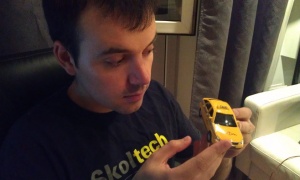
Andrii Omelianovych, co-founder and developer of Sharxi, an app which aims to reduce the costs of taxi rides in Moscow. Image courtesy of Sharxi (click to enlarge)
With Uber, Gett and Yandex.Taxi already well-known in Moscow, it may seem that there is little room for yet another taxi app, but two Skoltech graduates hope their taxi-sharing start-up, Sharxi, can find a niche.
The goal of Sharxi, developed by Boris Urman and Andrii Omelianovych (15’), is to significantly reduce the cost of a taxi ride by pairing up strangers headed in the same direction. A potential user opens the app, puts in their current location and where they are headed, submits the order, and waits for the system to find other passengers whose planned routes are similar.
Sharxi, which was launched on May 10 and has been downloaded 200 times so far, makes money by contracting with official taxi companies and taking a commission on every ride booked through the app.
The $1 Billion Market
The goal of Sharxi’s founders is to cut the price of an average cab ride in Moscow from 1,050 rubles ($16) to 500 rubles ($7.50), as well as to reduce the number of cars on Moscow’s crowded roads. Particularly, they focus on travelers looking for rides from the city’s three main airports to the town center.
“The taxi market in Moscow is around $1 billion a year, and economy class makes up 55 percent of it. Our goal is to get at least 1 percent of the economy class — about $5 million a year,” Omelianovych told The Moscow Times newspaper.
Statistics from a report about the taxi market in Moscow shown on Russian TV’s Channel One in 2012 also put its value at about $1 billion, but an April report by the Civic Chamber estimated it far higher, at $16.5 billion.
The start-up faces some serious challenges. The idea of splitting a taxi ride via an app is not particularly new. For example, Uber already has a fare-splitting function called UberPool. Additionally, taxi users surveyed by The Moscow Times said that the price of individual rides was not so great as to encourage them to book a shared ride, citing other taxi apps that have reduced the cost of journeys and the desire to go directly to their destination without any detours as factors that would put them off.
But others said they would welcome the chance to save money by splitting the fare, and many of the users who have tried the app, which is currently in Beta testing, were positive about the cost of the service.
The 500 Ruble Question
“I went from Vnukovo [Airport] to Aminyevskoye Shosse [in western Moscow] for 500 rubles ($7.50) — it was fun and fast!” a user who identified themselves as Vakhe wrote on the app’s website.
“Paid 500 rubles for a trip from Domodedovo [Airport] to Vyazemskaya Ulitsa [in western Moscow]. Great! Will definitely recommend to friends and family,” another test user, Lyuba, wrote.
Reviews of other aspects of the service were not so positive, however.
Among the main issues listed by users was the long wait to find another passenger.
“I was waiting for a co-passenger from Sheremetyevo [Airport] to Filyovsky Park [a district in western Moscow] and there was no one, so I had to take a single ride. Luckily I wasn’t in a hurry,” wrote user Ivan.
Another frequent issue mentioned in the reviews was passenger compatibility.
“We are thinking about adding a psychological survey for users, so passengers can be selected by temperament,” Omelianovych told The Moscow Times.
120 Startups
Sharxi is one of about 120 start-ups being developed at Skoltech and Skolkovo, a graduate research university that focuses on entrepreneurship and innovation and is located in west of Moscow.
One of the perks of being residents of Skolkovo, which was founded by former president and current Prime Minister Dmitry Medvedev as Russia’s ‘Silicon Valley’, is easy access to investors and officials.
Although Urman and Omelianovych’s app has been downloaded only 200 times, they have already presented the app to City Hall’s transport department.
“The state officials said our idea is good but haven’t offered us any deal yet,” Urman told The Moscow Times. “We will keep in touch with them.”
The stiff competition on the Moscow market has Sharxi’s creators looking to Asia to develop the app further.
Last month, Skolkovo provided Urman and Omelianovych with tickets to Hong Kong to participate in the Smart Green Cities entrepreneurship forum at Hong Kong University of Science and Technology.
“The Asian market is huge and dynamic in comparison with the European one, which is overloaded with services,” Omelianovych told The Moscow Times, adding that he had lived in Seoul, South Korea for six years and is comfortable with the Asian environment.
“Potentially we can boom in Asia, but for that we need internal partners.”
This story is a slightly modified version of an original story about Sharxi which appeared in The Moscow Times. We thank the author and the publication.
Supporting Children with Disabilities: Smart Robots go to School
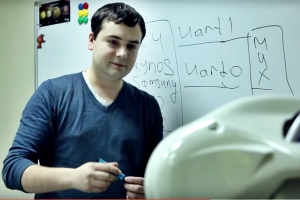
Webot, a telepresence robot, supports children who cannot attend school by ‘representing’ them in class. photo courtesy of Wicron (click on image to enlarge)
The first Day of September is known in Russia as Den znanii (‘Knowledge Day’). All across the vast country, crowds of still-fresh students and somewhat-excited schoolchildren gather to hear university presidents and schoolmasters ring the ‘first bell’. The quaint ceremony traditionally marks the opening of the school year.
Yet for children with disabilities who can neither join the festivities nor attend class this day might be a difficult and painful one. But help is on the way: this year, for the first time in Russia, a smart telepresence robot will go to school. Webot, developed by a team of Skoltech PhD students, stands in for pupils who cannot attend class.
The mobile, friendly white robot will be installed in five elementary schools in the Astrakhan region. It is equipped with a flat screen, camera and microphone designed to easily transmit anything students with disabilities need to see and know: lectures, activities, or homework assignments.
Webot‘s round head unit and long ‘neck’ rotate in all directions, and the robot can follow any person – a teacher, a friend, even a first love. And if the home-ridden student wishes to answer a question, Webot will be happy to do that for them. The robot can even joke around.
“Equality and Opportunity for all Children”
“It is like an avatar, allowing kids to move around, even from a distance”, says Stas Ashmanov, a Skoltech PhD student with Prof Ivan Oseledets and managing partner of Wicron, a Moscow based startup behind Webot and smart home assistants. “It is as if we ‘teleport’ kids from home to school. We want kids to know that even if they are in pain or limited in movement, they can still learn and grow and participate in school life. It is all about equality and opportunity for all children”.
How does the technology actually work? Webot’s functionalities are managed and controlled over the internet. All a remote student needs to do is switch on her or his home computer and go online. When connected to ‘its’ student, the robot immediately faces the user and represents it in the classroom. When fully charged, the robot’s battery lasts the whole day.
The developers – which include Ashmanov, along with fellow students Dmitry Suvorov and Roman Zhukov (PhD candidates under the guidance of prof Dzmitry Tsetserukou) – feel the ambitious project is a perfect example of Skoltech’s goal to create innovation that positively impacts society. Webot’s school tele-presence project was crowd funded, and receives support and guidance from Russia’s Ministry of Education. Currently, each of the five schools participating in the experiment received one robot. Future plans foresee more robots attending classrooms nationwide.
Text: Ilan Goren
UMNIK: Skoltech Hosts National Innovation Competition
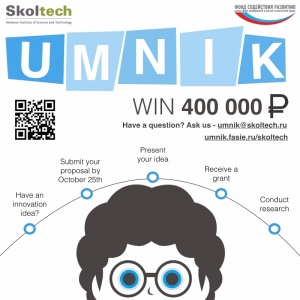
UMNIK is a special program supporting young high-tech startups in five fields for a duration of 2 years.
Can an innovation project benefit from 400k ruble worth of seed funding? Of course.
And now there’s a new way to win such support: UMNIK.
UMNIK (meaning ‘smart guy’ in Russian) is a program supporting young high-tech startups (led by Russian citizens) in five fields for a duration of 2 years. This year, for the first time in UMNIK’s history, Skoltech administers the competition from collecting and selecting initial applications to hosting the national final in October.
Winners will be awarded grants, funded by the Foundation for Assistance to Small Innovative Enterprises in Science and Technology (FASIE). Skoltech graduate Dmitry Smirnov won the grant in 2013 for the development of an external combustion engine, a project which has grown to become a company called “Thermal Motors”.
The program aims to support students, post-docs and researchers based in Russia who develop innovative startups in the following fields:
Information Technology
Medicine
Materials science
Devices and hardware
Biotechnology
Apply now to turn your SME into a big success story: http://umnik.fasie.ru/skoltech/
2014: The Year in Photos
2014 was a year of ongoing growth at Skoltech. And now is a good moment to reflect on it.
The university’s intertwined research, innovation and education initiatives expanded to new fields. The institute formed new academic and industrial partnerships and strengthened its collaboration with the Massachusetts Institute of Science and Technology (MIT). Our community thrived, and reached, by the end of December, 50 members of faculty and 220 master’s and PhD students hailing from 30 countries. 60% of students have become actively involved in startup projects. View this photo gallery to take a look back at some of this year’s memorable moments and get a glimpse of work and life here, at the Skolkovo Institute of Science and Technology.
Photos courtesy of: Anastasia Belyakova, Ilan Goren, Aleksei Kalabin, Elena Volochine, the-village.ru,
From Labs to Riches: Student’s Financial Management Startup Wins Global Entrepreneurship Award
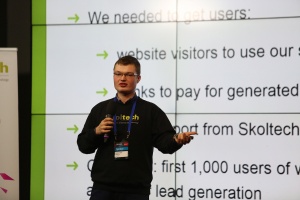
Alexander Ivanov, Skoltech student and Easy Wallet’s co-founder: “I’ve never been so ready for a presentation in my life”.
“I think I’ve never been so ready for a presentation in my life”, Alexander Ivanov said after he completed a four minutes session facing a panel of judges at the Global Student Entrepreneurship Award. “I went through so many sleepless nights. I endlessly rehearsed. Turns out that was the right thing to do”. Financial management service Easy Wallet, which Ivanov co-founded with fellow Skoltech student Rustem Feyzkhanov, was awarded Best Internet Project for 2014.
It was a coming-of-age affirmation for the two young developers cum entrepreneurs. Launched in 2013, Easy Wallet set out to offer a hassle-free alternative to the complex – and at times confusing – information services offered by banks. The mobile app parses (analyzes) the text notifications sent to clients. It then gives the customer an overview of balance at various bank accounts, helps set budget goals and recommends the best credit cards to achieve these targets.
Recommendations and offers are based on each individual user’s income, lifestyle, and consumption patterns, thus making Easy Wallet part of the much-talked-about trend of customization. The young company’s leadership duo says the service has no need for and never uses personal data, PIN codes or card numbers.

Easy Wallet’s main features include an overview of balance at various bank accounts, help with setting budget goals and customized credit cards recommendations
Ivanov: “It is pretty incredible to think of the progress we made. We started to work in September 2013, received support from Skoltech mentors who helped us establish connections with banks. We also leveraged the university’s educational resources. Then we received funding from HSE’s Innovation Project program and spent four months with the QIWI Universe accelerator. Thousands of people downloaded the app and we have established a profitable online card calculator. We’re constantly growing.”
And then came the GSEA award.
Ivanov describes it in David vs Goliath terms. “You know, we competed with mature projects which have hundreds of thousands of users and millions of dollars in revenue. Then we had four minutes for our presentation and four minutes for Q&A. And we won.”
It was not the only achievement that startups launched by Skoltech students scored toward the end of 2014. ImageAiry, a satellite imagery marketplace, was selected as one of the year’s top 50 Russian startups. The university’s Center for Entrepreneurship and Innovation (CEI) estimates that 6 out of 10 Skoltech graduate students are actively involved in similar projects.
Some student owned enterprises, like Easy Wallet, are beginning to reap the rewards of their hard work. Since they were nominated for the award by Google, Ivanov and Feyzkhanov will travel to Seoul, South Korea in April 2015. They are scheduled to visit the local Googleplex, where they hope to gain invaluable networking opportunities.
Easy Wallet can be downloaded as a free app for Android and is currently available for clients of more than 60 Russian banks. Additionally, its website offers a free service which locates the most beneficial bank cards and deposits programs available online.
* The Skolkovo Institute of Science and Technology (Skoltech) is a private graduate research university in Skolkovo, Russia, a suburb of Moscow. Established in 2011 in collaboration with MIT, Skoltech educates global leaders in innovation, advances scientific knowledge, and fosters new technologies to address critical issues facing Russia and the world. Applying international research and educational models, the university integrates the best Russian scientific traditions with twenty-first century entrepreneurship and innovation.
